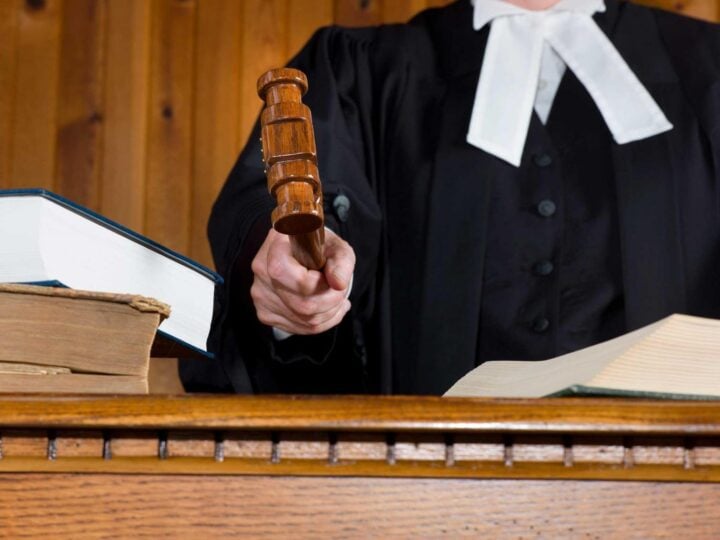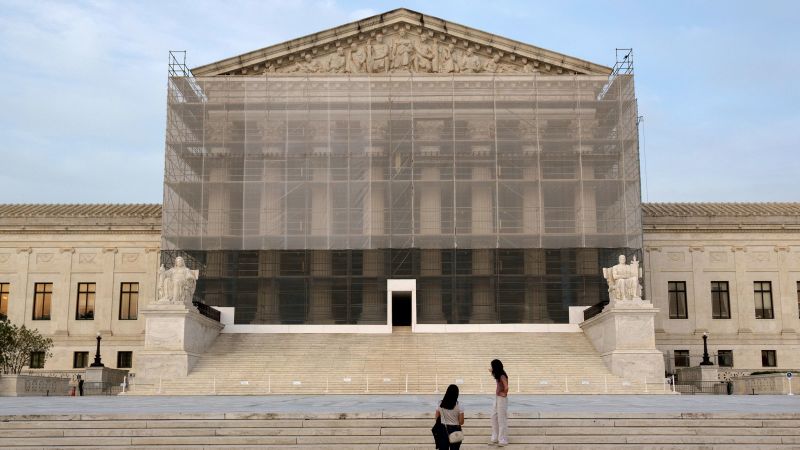US Supreme Court sides with Trump in South Sudan deportation fight
The US Supreme Court again sided with President Donald Trump's administration in a legal fight over deporting migrants to countries other than their own, lifting on Thursday limits a judge had imposed to protect eight men who the government sought to send to politically unstable South Sudan.
The court on June 23 put on hold Boston-based district judge Brian Murphy's April 18 injunction requiring migrants set for removal to third countries, where they have no ties, to get a chance to tell officials they are at risk of torture there while a legal challenge plays out.
The court on Thursday granted a justice department request to clarify its June 23 decision also extended to Murphy's separate May 21 ruling that the administration had violated his injunction in attempting to send a group of migrants to South Sudan. The state department has urged Americans to avoid the African nation “due to crime, kidnapping and armed conflict”.
Two liberal justices, Sonia Sotomayor and Ketanji Brown Jackson, dissented from the decision.
The court said Murphy should “cease enforcing the April 18 injunction through the May 21 remedial order”.
Murphy's May 21 order mandating further procedures for the South Sudan-destined migrants prompted the US government to keep the migrants at a military base in Djibouti. Murphy also clarified at the time that non-US citizens must be given at least 10 days to raise a claim that they fear for their safety.
After the Supreme Court lifted Murphy's April injunction on June 23, the judge ruled that his May 21 order “remains in full force and effect”. Calling that ruling by the judge a “lawless act of defiance”, the justice department the next day urged the Supreme Court to clarify its action also applied to Murphy's May 21 decision.
Murphy's ruling, the justice department said in court filings, has stalled its “lawful attempts to finalise the long-delayed removal of those aliens to South Sudan”, and disrupted diplomatic relations. Its agents are being “forced to house dangerous criminal aliens at a military base in the Horn of Africa that lies on the borders of a regional conflict”, it said.
Even as it accused the judge of defying the Supreme Court, the administration itself has been accused of violating judicial orders, including in the third country deportation litigation.
The administration has said its third country policy is critical for removing migrants who commit crimes because their countries of origin are often unwilling to take them back. The Supreme Court has a 6-3 conservative majority. Its three liberal members dissented from the June 23 decision pausing Murphy's injunction, with Sotomayor calling it a “gross abuse” of the court's power that exposes “thousands to the risk of torture or death”.
After the department of homeland security moved in February to step up rapid deportations to third countries, immigrant rights groups filed a class-action lawsuit on behalf of a group of migrants seeking to prevent their removal to such places without notice and a chance to assert the harms they could face.
In March the administration issued guidance providing that if a third country has given credible diplomatic assurance it will not persecute or torture migrants, individuals may be deported there “without the need for further procedures”.
Murphy found the administration's policy of “executing third country removals without providing notice and a meaningful opportunity to present fear-based claims” likely violates due process requirements under the US constitution. Due process generally requires the government to provide notice and an opportunity for a hearing before taking certain adverse actions.
The justice department on Tuesday noted in a filing that the administration has received credible diplomatic assurances from South Sudan that the aliens at issue will not be subject to torture.”
The Supreme Court has let Trump implement contentious immigration policies while the fight over their legality continues to play out. In two decisions in May, it let Trump end humanitarian programmes for hundreds of thousands of migrants to live and work in the US temporarily. The justices, however, faulted the administration's treatment of some migrants as inadequate under constitutional due process protections.







